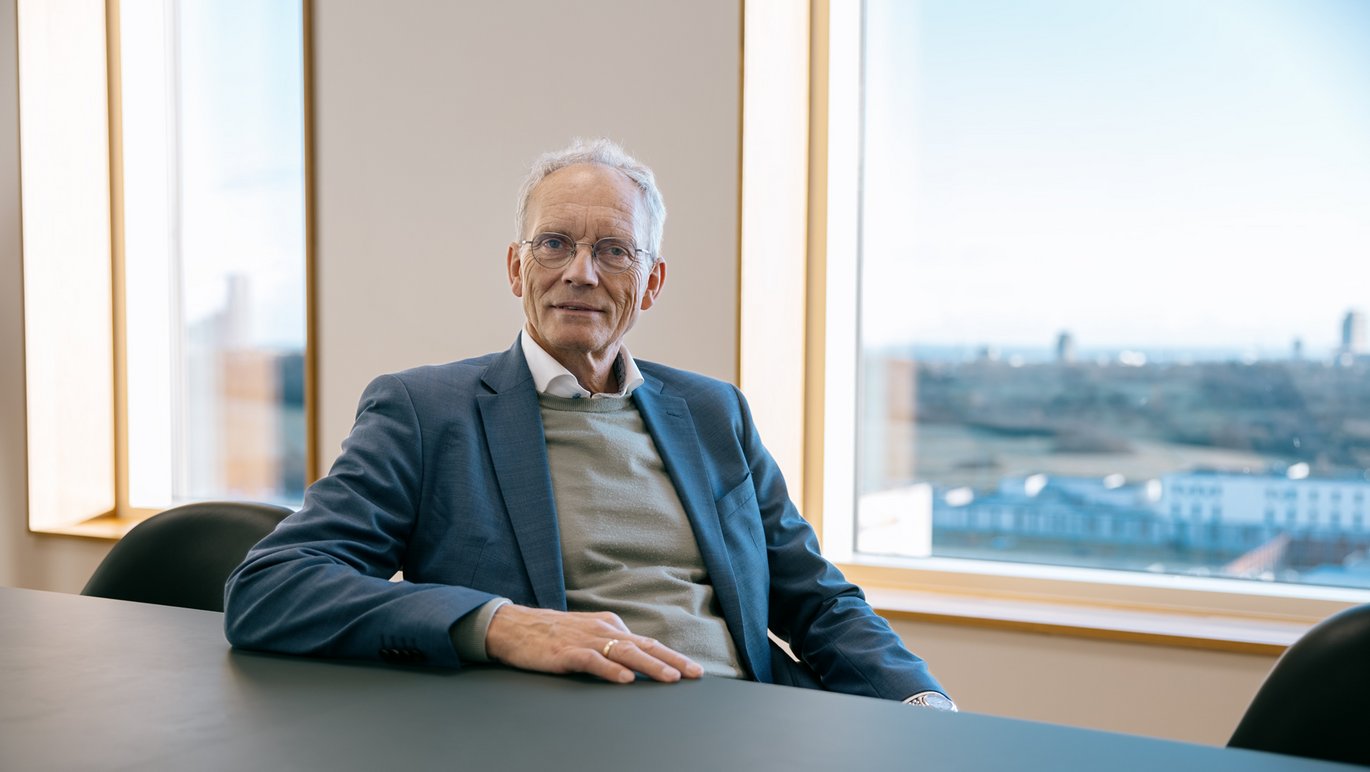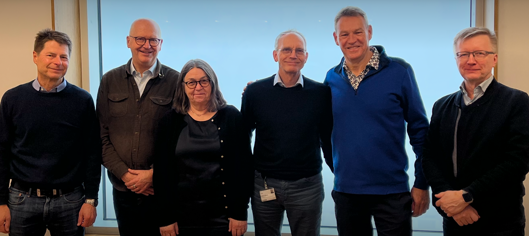Panel visit leads to new action plan at Department of Clinical Medicine
"They were extremely sharp, and their input was all truly qualified," says Jørgen Frøkiær, head of the Department of Clinical Medicine, about the international expert panel that evaluated the department's research environment in early 2025.

Fact box: How do we become even better?
All departments at Health have had visits from an external panel over the past year.
With the panel's feedback in hand, institute management has had to develop an action plan.
The departments have themselves appointed the external panels according to criteria from the faculty's steering group for research evaluation – for example, requirements regarding experience, academic breadth, impartiality, and balance in terms of gender, age, and institutional diversity.
Members have been sent a comprehensive dataset and a self-evaluation from department management in advance.
In early 2025, an international expert panel evaluated the Department of Clinical Medicine's research environment.
The panel reviewed material from the department's 66 units and subsequently provided a series of recommendations to strengthen the department's international position.
Based on these, the department has now developed an action plan. We spoke with Jørgen Frøkiær, head of the Department of Clinical Medicine, about the evaluation and the new action plan.
How did you experience the panel visit and evaluation overall?
They were extremely sharp, and it was a general assessment they made of the department, which doesn't say anything about how performance is in the individual environments. But the input they provided was all very insightful, and I think we should pursue all of it and use it proactively.
What were the most important recommendations from the evaluation panel?
The main conclusion is that we need to strengthen strategic collaboration across different institutions in the health sector. If you really want to have a powerhouse within clinical research, it requires strong partnerships.
Which areas did the panel point to that you hadn't expected?
There are perhaps some things we hadn't paid as much attention to. In the innovation area, for example, we haven't had as much focus on that in our self-evaluation, and the report gives an impression that we have major shortcomings in this area. But the Department of Clinical Medicine is actually one of the departments at AU that has the most industry collaborations and registers the most patents.
What other topics did the panel highlight in the evaluation?
They suggest that the environments at DCM should work even more interdisciplinarily. Regarding innovation, they also recommend that much more work should be done to reduce the legal barriers that demotivate and block important collaborations – it should simply be easier to conduct clinical research. And I completely agree with that, and it's also something we have full focus on. We have so many opportunities with all our data, but in a way, barriers are set up that seem incomprehensible.

Were there recommendations from the evaluation that you disagreed with?
No, there actually weren't. I think they were very sharp. Of course, not all recommendations are equally easy to implement directly, and some of the recommendations also require close collaboration and coordination with external actors such as the Central Denmark Region and the hospitals here.
What was your biggest positive surprise from the evaluation?
I was pleased that they had studied the material so thoroughly – they were really prepared. It was a huge task because we had asked them to look at 66 research environments.
What did the panel say about the department's international position?
They commented on our international competitiveness. But they also said that we should have greater focus on recruiting international researchers. I completely agree with that.
Now you at the department have created an action plan based on the recommendations. What is central here?
What's central in our action plan is that we take the panel's recommendations seriously and implement them in our strategic work. One piece of advice from the panel that we are pursuing further in department management was to consider how we best structure ourselves organizationally. 66 research units distributed across the entire Central Denmark Region requires strong governance, and here we are investigating whether this can be done more appropriately in a different way than we do today. In addition, talent development is absolutely crucial. We currently have around 10 vacant clinical professorships, and we need to ensure career paths for clinical research talents so we can continue to attract the most skilled. We need to establish more formalized pathways where talented clinicians can develop as researchers and leaders. The third important element is closer cross-cutting collaborations – both between research environments internally and with external partners such as the primary sector. We have strong environments, but we can become even better at working together.
Contact
Department head Jørgen Frøkiær
Department of Clinical Medicine
Phone: +45 20234527
Mail: jf@clin.au.dk